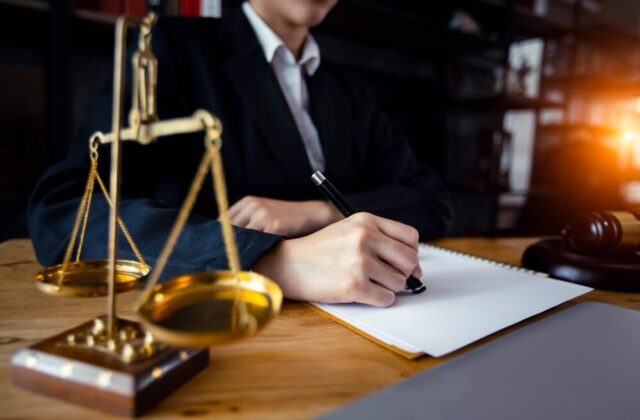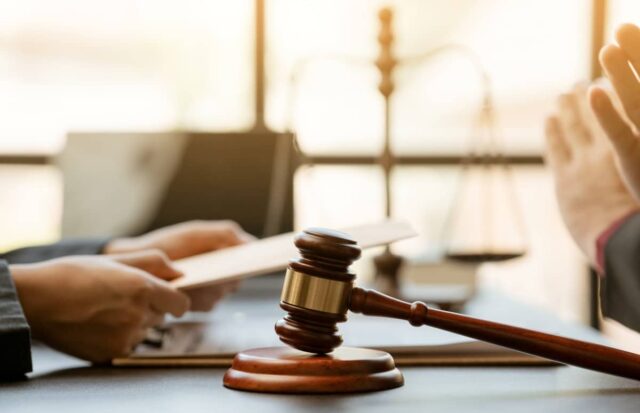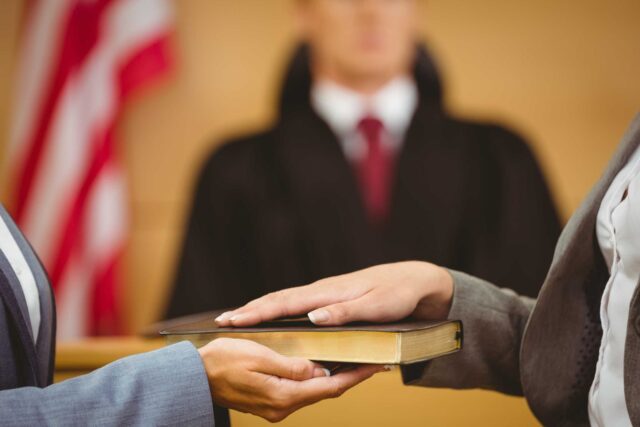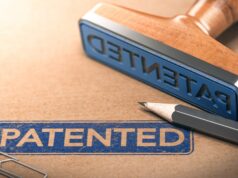
In the blink of an eye, a car accident can upend life’s normalcy, thrusting victims into a world of chaos and uncertainty. The emotional and physical trauma incurred can be overwhelming, not to mention the potential financial devastation such as medical bills, lost wages, and property damage.
In the face of such adversity, it becomes paramount for victims to seek justice, not merely as a moral or punitive recourse but as a practical avenue to recover these steep costs and make their lives whole again. Justice, in this context, is both a balm for emotional wounds and a financial lifeline.
Understanding Fault and Liability

To grasp the intricacies of car accident litigation, it is critical first to understand the principle of ‘fault’. The notion of fault determines who is legally responsible for the accident and thus who bears the liability for damages incurred.
The laws governing this principle vary across states, with some jurisdictions following ‘at-fault’ rules while others adopt ‘no-fault’ policies. In ‘at-fault’ states, the driver who caused the accident holds liability, and their insurance company must compensate for the damages.
On the other hand, ‘no-fault’ states necessitate that each driver’s insurance covers their damages, regardless of who caused the accident.
Gathering Evidence and Documentation
Sailing through the murky waters of car accident litigation often requires the wind of strong evidence. It starts at the scene of the accident where collecting as much information as possible is crucial.
This includes taking photographs of the accident scene, noting down the details of other involved parties, and securing accounts from witnesses. Beyond the immediate scene, procuring crucial documents such as police reports and medical records is paramount.
These records establish a reliable timeline of events and give a verifiable account of the injuries sustained. Equally important is the preservation of physical evidence like the damaged vehicles or peculiar road conditions that may have contributed to the accident.
Contacting Law Enforcement and Insurance Companies

Engaging law enforcement immediately following an accident is not just a legal requirement in many jurisdictions, but it also provides an impartial and objective account of the accident, which can be invaluable during a legal contest.
The responding officers will produce a police report, a document that serves as a trusted narrative of the accident and often influences insurance companies’ decisions. Meanwhile, dealing with insurance companies requires a careful approach, as the statements you provide to them can significantly impact your claim.
It’s crucial to provide a factual account without conjecturing about fault or the extent of injuries as these determinations are best left to the professionals.
Understanding Personal Injury Claims
Navigating the world of personal injury claims necessitates a grasp of the fundamental concepts and how they apply to car accident cases. In essence, personal injury claims involve seeking financial compensation for injuries and damages incurred due to another party’s negligence.
In the context of car accidents, these injuries could span a wide spectrum from seemingly minor whiplashes to life-altering afflictions such as broken bones and traumatic brain injuries.
Each of these injuries carries potential long-term implications and varies widely in their treatment and rehabilitation costs. Compensation for personal injury claims commonly covers aspects like medical expenses, loss of income, property damage, and pain and suffering.
The Role of Legal Representation

The labyrinth of the legal system can be intimidating and difficult to navigate for the layman, making it highly advisable to enlist the aid of an experienced Atlanta car accident lawyer.
These professionals bring a wealth of knowledge and expertise to your corner, shouldering the responsibilities of collecting and presenting evidence, liaising with insurance companies, and advocating for your rights in court if it comes to it.
The cost barrier, often a deterrent for many, is lowered by the fact that many attorneys offer free initial consultations and operate on a contingency fee basis, meaning they only get paid if they win your case.
Negotiating with Insurance Companies
Much like a game of chess, negotiating with insurance companies requires strategic thinking and patience. Insurance companies, like any other business, are geared to minimize their expenses.
This often translates to tactics aimed at reducing the amount they pay out in settlements. They may question the severity of your injuries, suggest you shared some of the blame, or find other ways to diminish your claim.
In the face of such maneuvers, it’s vital not to accept the initial settlement offer without first consulting with an attorney. This ensures you have a seasoned negotiator on your side, fighting to ensure you receive a fair settlement commensurate with your injuries and losses.
The Process of Filing a Lawsuit

Should negotiations fail, or if the insurance company’s settlement offer falls short of your actual damages, filing a lawsuit becomes the next logical step. This process involves drafting a formal complaint outlining your allegations and damages, conducting discovery to gather evidence, and eventually proceeding to trial.
It’s also vital to be cognizant of the statute of limitations, which sets a deadline for filing a lawsuit. The ticking clock of this statute makes timely action imperative. In some cases, exploring alternative dispute resolution methods such as mediation or arbitration may offer a less confrontational, more controlled path to a fair settlement.
Factors Affecting Compensation
Car accident compensation is not a one-size-fits-all figure; several variables can influence the amount awarded. These range from the severity and long-term implications of your injuries, the strength and clarity of your evidence, and the perceived level of the at-fault party’s negligence.
Legal concepts such as comparative negligence, where your potential compensation may be reduced if you’re found to be partly at fault, and the possible impact of pre-existing medical conditions on your case, can significantly influence the final compensation figure.
Understanding these elements can arm you with realistic expectations and inform your legal strategy.
Going to Court: What to Expect

Facing a courtroom can be an intimidating prospect. Knowing what to expect can alleviate some of this apprehension. The process typically involves presenting your evidence, cross-examining the other party’s witnesses, and making persuasive arguments to convince the judge or jury of your case’s merit.
The outcomes are diverse and could range from a ruling in your favor, securing the compensation you sought, to a disappointing verdict where you receive less than expected or even nothing at all if the court doesn’t find in your favor.
The Importance of Preserving Mental Health

Beyond the physical afflictions and financial worries, car accidents can inflict significant emotional distress on victims. This can manifest as anxiety, depression, or post-traumatic stress disorder.
It’s crucial to seek help to cope with this emotional trauma, whether through psychological counseling, joining support groups, or practicing relaxation techniques such as meditation or yoga.
Ignoring the emotional toll not only impedes your overall recovery but could also negatively impact your legal claim, as a healthy state of mind often aids in making sound decisions and presenting your case more effectively.









